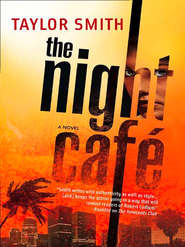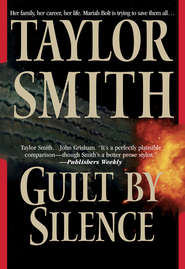По всем вопросам обращайтесь на: info@litportal.ru
(©) 2003-2024.
✖
Slim To None
Автор
Год написания книги
2018
Настройки чтения
Размер шрифта
Высота строк
Поля
After the short conversation with Stern, Kenner tucked the phone away once more, then sat on the edge of the cot, thinking about the best way to deal with the problem of the American doctor. On the one hand, her capture had inflated Salahuddin’s reputation in this campaign where image was everything. The foreign press was already coming to name him as a power to be reckoned with, which helped attract followers to the sheikh’s camp.
From an American perspective, this kidnapping could be played a number of ways. In a worst-case scenario, if anything were to happen to the doctor, it would cement Salahuddin’s reputation as a power to be feared. If nothing else, it provided a convenient high-profile villain to shore up the American public’s support for the invasion of the country, now that it was becoming clear that the weapons of mass destruction play had been a bluff. On the other hand, if the public outcry over the doctor’s kidnapping became too clamorous, the American military might be tempted to launch a strike against Salahuddin. Kenner couldn’t let that happen. Salahuddin was too useful to him. He’d spent too long working this plan to stand back and see his protégé eliminated.
The rich tapestry of the prayer mat lying in one corner of the room, prearranged so that it was facing toward Mecca, caught his eye, and he scowled. Five times daily, when the muezzin called the pious to prayer, those who could get to the mosque did so in order to pray shoulder-to-shoulder as tradition demanded with their fellow believers. The sheikh accepted that Kenner’s responsibilities often prevented him from praying at the mosque, but he believed the convert made use of the prayer mat. Kenner, however, barely gave the rug a glance.
Reaching over the side of the cot, he grabbed his boots, pulled them on and laced them up, then got to his feet. Approaching his midforties, his short-cropped hair rapidly going from white-blond to pure white, Kenner’s body retained the lean, hungry appearance of an Arctic wolf, with cold blue eyes to match. He strapped on his gun belt and slipped the knife he always carried into the sheath at the small of his back. Then, he stepped outside onto the low veranda surrounding the compound’s open central courtyard.
A mosque stood at one end of the compound. Behind it, a series of rooms ran off a rectangular inner square, open to the sky above. In times of peace, the rooms were used for meetings and for Koranic instruction of the village children. These days, they held an armory and barracks, as well as the makeshift infirmary that Salahuddin had ordered set up after the last shoot-out with American soldiers, in which several of his followers had been wounded.
It wasn’t that Salahuddin spared all that much compassion for the injured, Kenner knew. If they couldn’t fight another day, they would have served the cause better by dying in battle. The sheikh had no problem sending young men out to blow themselves up on suicide bombing missions, especially the less talented among them. It was a win-win situation. They had the reward of paradise, with its forty-two houris, and Salahuddin had holy martyrs to bring in more recruits for the cause. But instead, these men wounded by the Americans were brought back to the compound moaning and groaning about their injuries, and that was just bad for morale. The sheikh had needed a doctor to take care of them and shut them up, and the American girl had turned out to be what he got.
Kenner moved around the edge of the veranda towards the sheikh’s quarters. A wide-branching fig tree stood in the center of the courtyard, silhouetted by the light of a small fire that burned in a brazier at the far end of the yard. The scent of smoke drifted on the warm night air. Except for the occasional spit and crackle of the flames, the compound was silent and dark. Kenner looked up. A twinkling swath of stars blanketed the pitch black sky.
As the sound of a low murmur reached his ears, Kenner turned back to the brazier and noted that two—no, three—of the men who were supposed to be on night guard were instead lolling around the fire on molded plastic chairs. They obviously hadn’t noticed him.
Stepping deeper into the shadows of the overhanging roof, Kenner crept ahead. Silently withdrawing his knife from the leather sheath at his back, he hugged the wall as he padded toward them, silent as a panther. The gleam of the fire danced on their glistening skin. One of the guards, sitting with his back to the veranda, was old enough to sport a thick, black beard and mustache, but the other two were barefaced youths. The younger men’s eyes glittered as they watched the dance of the fire in the brazier. All three were mesmerized by the flames—and blinded by them, Kenner thought contemptuously.
He stole up behind the bearded one, then sprang like a coiled snake, grabbing him by the hair and pulling the head back so that the blade of his matte black knife had clear access to the soft, vulnerable skin beneath the wiry beard. The man’s white plastic chair tipped back on two legs, and he stared up, terrified, into those pale Arctic eyes. The two youths sprang to their feet, tipping over their chairs as well as the Kalashnikov rifles that they’d carelessly propped against the armrests.
“You’re dead,” Kenner growled, as his knife etched a superficial but memorable line in the man’s neck.
Too surprised to remember to reach for their sidearms, the youths stared, open-mouthed, while their bearded comrade whimpered for his life.
“And the two of you,” Kenner added, glancing up at them, “would be just as dead if this were a real enemy infiltration. Did you see or hear me approach?”
“N-no.”
“Of course not, idiots. Your eyes were blinded by the light and your ears were filled with the sound of your own yammering. Why are you not patrolling the grounds?”
“We were,” one of them protested.
“We only just stopped for a moment to take a little tea.”
“And if this were the moment that the enemy chose to strike?” Kenner asked. “What good are you if you cannot see him coming? If you cannot kill him before he kills you? If you cannot at least sound a warning to your brethren asleep in the barracks? If we relied on your vigilance, we could all be dead now.”
“It was a mistake. We meant no harm,” the bearded one said breathlessly, petrified to move lest the knife at his throat cut any deeper.
Kenner gave him a disgusted look and yanked his head back another inch or two. Finally passing equilibrium, the chair tipped over backwards. As the man tumbled to the ground, Kenner released him. Bending down, he wiped his knife blade on the man’s grimy shirt, then slid it back into the sheath.
“Return to your posts now,” he warned, “and let this be a lesson. If I find you betraying the sheikh with your carelessness once more, my knife will show no pity.”
The bearded one scowled but got to his feet as the other two scrambled to retrieve their assault rifles. “Yes, sir. Thank you. May the Prophet bless you,” they said breathlessly as they scrambled off to their guard posts.
“And may he keep you alive in spite of yourselves, you morons,” Kenner muttered, heading away toward Salahuddin’s quarters.
CHAPTER
8
Al Zawra: Central Iraq
Hannah pressed the light fob on her black army surplus watch. Nearly 3:00 a.m. The dial went dark again as she released the button—no telltale fluorescent to give away her position in the dark.
Sean Ladwell stood at the window, peering around the edge of the curtain, his M-16 rifle gripped in both hands. Nuñez and Wilcox kept moving from room to room, checking for trouble from alternate vantage points.
Ladwell glanced back at her. “Tell the old woman they need to hurry.”
“She knows,” Hannah said, watching the grandmother fumble through a drawer, withdrawing underthings that she handed to her granddaughter.
The house fairly hummed with tension, and for good reason. The eastern sky would lighten soon. Roosters would crow in backyard coops. With the electricity down, neighbor women would rise early to start cooking fires to make breakfast for their families. Soon, the whole town would be stirring, including the warlord Salahuddin and his troops in their compound, which advance intel said was behind the mosque, near the town center. If the team was going to head back to the hills for their rendezvous with the chopper without being seen, then they were going to have to leave very soon.
“Why don’t you guys wait out in the front room?” Hannah told Ladwell. “These ladies won’t want to get dressed in front of men. I’ll stay and speed things along.”
The team leader glanced at the woman and girl, who were shyly folding clothing on one of the beds. Nuñez arrived in the doorway, back from his circuit of the house. The young ex-marine was short but solidly built. A high school wrestler, Hannah thought. Nuñez had to be at least twenty-one, because that was Brandywine International’s minimum age for its contract security forces, but in spite of his flak jacket and armaments, he still looked like a kid playing at soldiering.
“Wait out in the front room,” Ladwell told him. Then he turned back to Hannah. “They can’t bring much. Tell them that.”
“I think they get it that this is no luxury cruise we’re offering.”
“They should pack only what they can carry themselves. We’re going to be moving out at a brisk clip and there’s no such thing as chivalry here. No one’s going to carry their stuff. We’ll be busy enough trying to keep them alive till we get to the LZ.”
“I’ll make sure they understand.”
Ladwell grunted and headed out of the room.
Hannah turned to the woman and girl and switched back to Arabic. “The men will wait in the living room. You should hurry and get dressed now. We have a long walk ahead of us, and we don’t want to be running into anyone.”
“We are walking to London?” Yasmin said.
“No, just into the hills to the west of here. It’s about two kilometers. We’ll be picked up there and flown out. I’m sorry,” Hannah added to Zaynab. “I wish we didn’t have to make you walk, but it was too risky to drive in case of roadblocks.”
“No matter. I am strong,” the old woman said. “We both are. Come, Yasmin, hurry. Here are your things.”
An ornately carved wooden bureau stood between the two narrow beds. Hannah set her flashlight down on top of it, pointing it toward the large oval mirror hanging above to add a dim, red-tinged light for Zaynab and Yasmin to see by. The mirror was gilt-framed and, like the ornate bureau itself, said something about the comfortable and relatively privileged life that this family had once lived. At the same time, the mirror’s silver backing was crackled. This, like the peeling blue paint on the walls and the chipped and broken ceramic tiles on the floor, was mute testimony to years of declining family fortunes. In a country where the average annual income wouldn’t cover an American family’s cable TV service, these people had obviously been among the country’s small, educated elite, part of that group who should have helped this ancient and cultured nation move into the future. Such people, however, were just the type to attract the attention of a paranoid dictator.
Yasmin turned her back modestly as she lifted her faded nightdress over her head. Hannah caught a glimpse of birdlike shoulder blades and a pronounced rib cage, the bones jutting too sharply to indicate anything but malnutrition. This child had lived almost her entire lifetime under the sanctions mounted against Saddam’s regime after the Gulf War of the early nineties. The dictator and his cronies had kept themselves amply fed, clothed and entertained throughout that time, Hannah thought angrily, but Iraq’s children hadn’t been so well provided for. Things could only have gotten worse for poor Yasmin after the death of her parents, despite her grandmother’s best efforts.
“Here,” she murmured to the grandmother, who’d been pulling clothes from the bureau, “let me fold these while you get yourself ready. You won’t be able to take much, I’m afraid.”
“We have little enough.”
The old woman shut the drawer, then turned to a tall armoire. When she opened it, the scent of cedar wafted through the room. Hannah caught a glimpse of a man’s dark suit on a hanger—the dead son’s, no doubt—and of two black abayas, or burqas, draped on hooks at the side of the closet.
Zaynab caught her looking at the black shrouds, and she fingered the fabric. “My mother used to dress in full hijab, but in my lifetime, only peasants and uneducated women still did. I never used to wear one of those—my late husband never demanded it, thankfully. I dressed modestly, always wore a kerchief on my head, but I saw no reason to stumble around half-blind. After they killed my son and his wife, though,” she added bitterly, “it was the only way to go out safely into the streets. Even Saddam’s hooligans and this latest bunch, Salahuddin’s men, will not generally harass a woman in hijab. We are invisible. I made Yasmin cover up, too. Not even a child is safe these days.”
“I didn’t like it. It was hot,” Yasmin said.
“You won’t need it where you’re going,” Hannah told her.











